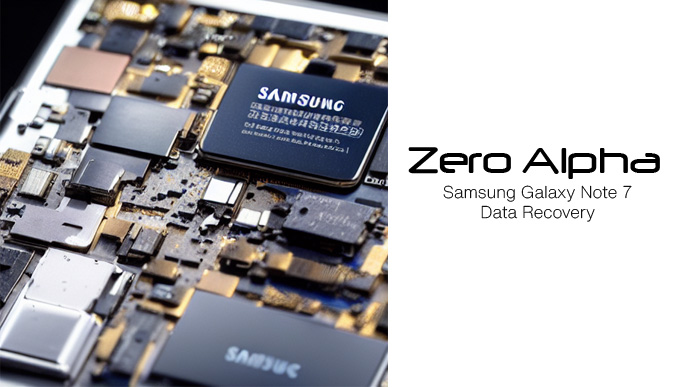Samsung Galaxy Note 7 Data Recovery
The Samsung Galaxy Note 7 was released in 2016 but was subsequently recalled due to safety concerns related to battery issues. As a result, the original model number, SM-N930, was discontinued, and the production and sales of the device were halted. It is important to note that the Samsung Galaxy Note 7 should not be used due to safety risks associated with its battery. If you own a Galaxy Note 7, it is recommended to follow the manufacturer's instructions for safe disposal or replacement.

Samsung Galaxy Note 7: Safety Concerns and Discontinuation
Introduction: The Samsung Galaxy Note 7 was once a highly anticipated smartphone, offering innovative features and advanced capabilities. However, it soon became synonymous with safety concerns, leading to a significant turning point in its history. This article explores the safety issues surrounding the Samsung Galaxy Note 7, its subsequent discontinuation, and the importance of following proper procedures for device disposal or replacement.
- The Rise and Fall of the Samsung Galaxy Note 7:
From Anticipation to Safety Concerns
Upon its release in 2016, the Samsung Galaxy Note 7 gained attention for its cutting-edge specifications and features. It boasted a large display, enhanced S Pen functionality, and powerful performance. However, reports soon emerged of incidents involving battery-related safety hazards, including overheating and, in some cases, exploding batteries.
- Battery Issues and Safety Recalls:
Addressing Safety Concerns
The battery issues in the Samsung Galaxy Note 7 were linked to a design flaw that caused an internal short circuit, leading to thermal runaway and the potential for fires or explosions. As a responsible action, Samsung promptly initiated a global recall of the Galaxy Note 7 devices, urging users to power off their devices and contact customer support for further instructions.
- Discontinuation and Impacts:
Halting Production and Sales
Despite initial efforts to address the battery problems, subsequent incidents forced Samsung to make a difficult decision. The company announced the discontinuation of the Samsung Galaxy Note 7, emphasizing customer safety as the utmost priority. This unprecedented move had far-reaching impacts on the smartphone industry and Samsung's reputation.
- Importance of Safe Disposal and Replacement:

Ensuring Safety and Compliance
For those who still possess a Samsung Galaxy Note 7, it is crucial to follow the proper procedures for safe disposal or replacement. Samsung and relevant authorities have provided clear guidelines on how to handle the device, including contacting the manufacturer, authorized retailers, or local authorities for safe disposal options. It is vital to refrain from using or charging the device and to comply with all safety instructions provided.
- Lessons Learned and Enhanced Safety Measures:
Advancing Product Safety and Quality Control
The Samsung Galaxy Note 7 incident served as a wake-up call for the entire smartphone industry. It prompted manufacturers to reevaluate and strengthen their safety measures and quality control processes. Through this experience, Samsung and other companies have implemented enhanced battery testing, stricter quality assurance protocols, and improved communication channels with customers.
Conclusion
The Samsung Galaxy Note 7, once anticipated for its advanced features, became a cautionary tale due to safety concerns associated with its battery. The subsequent recall and discontinuation highlighted the significance of customer safety and the need for rigorous quality control measures. It is crucial for Galaxy Note 7 owners to follow proper procedures for safe disposal or replacement, ensuring compliance with safety guidelines. This incident has led to improved safety practices in the industry and serves as a reminder of the importance of prioritizing user safety in all technological advancements.